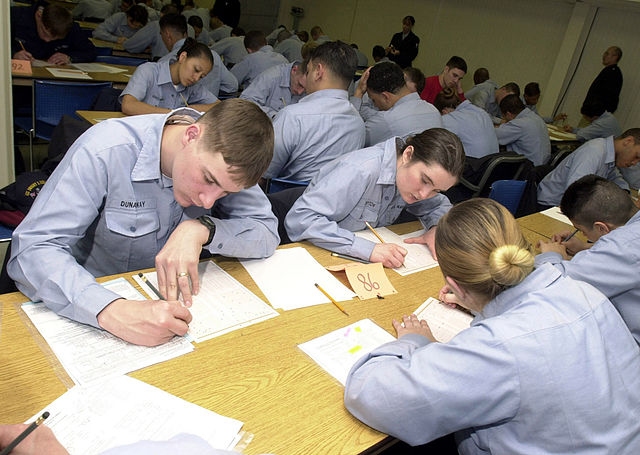By and through are two prepositions used in the English language between which certain differences can be identified. Before comprehending these two prepositions, let us understand the function of prepositions. Prepositions play a key role in any language. A preposition is a word used with a noun or pronoun to show place, position, time, or method. There is a variety of prepositions used in different instances such as at, around, behind, in, since, to, until, towards, from, about, etc. By and through are two such prepositions. Through this article let us examine the difference between these two prepositions in terms of usage.
What does By mean?
Preposition by is used in a number of instances. The preposition by can be used when implying that something is near or next to something else. For example, look at the following two sentences.
Our grand parents’ house is situated by a beautiful river.
By the cottage, there is a nice little fountain.
In both the sentences, by is used in the sense of near or next to. In the first sentence, by is used to indicate that the house is situated near a beautiful river. Similarly, the meaning of the second sentence is that there is a nice little fountain next to the cottage.
By can also be used when referring to the mode of transportation as in the following example.
We travelled by car.
She has already made plans to travel by train.
By is also used when indicating a time period as in the following example.
I will hand over the report by next Friday.
I will be finishing off by 6 o’ clock today.
Another function of by is when giving the idea that one has to come past or beyond something.
You have to come by the lake, to get to her place.
By can also be used in a sentence when referring to who was responsible for composing/ writing/making something.
Pride and Prejudice is one of the finest novels written by Jane Austen.
By is used to indicate the increase or decrease of something as well.
Since the election is next month, no wonder that the prices have dropped by 20%.
By can be used when referring to the manner in which something is done.
For the transaction I wish to pay by cash.
By can be used for measurements and for multiplications and divisions as well.
We need a ten inch by twenty inch board.
What is ten divided by five?
It can also be used when providing information of one’s origin, position of work.
My father is an engineer by profession.
By can be used to indicate that something occurred as a result of something else.
It happened by accident.
When referring to a particular period of time in which an action takes place we can use by.
Since there are wild animals roaming around, it’s best if we travel by day.
By can be used when stating that something is in accordance to a particular standard or a person.
It is prohibited by law.
By is used when the speaker wishes to express the exact manner in which someone should hold an object or when describing an incident in which someone held or touched another.
I pulled her by the hand to avoid the accident.
By can also be used when stating a rate of something.
I think you have to pay by the hour for the services.
This highlights that the preposition by can be used in a range of situations to refer to time, place and even other instances. However, the preposition through is a bit different in its usage.
‘We travelled by car’
What does Through mean?
When it comes to preposition through we see that it is used to imply the meaning from one position to another position of something; often from one end to the opposite end of something.
You have to go through the forest to get to the village.
Here, by using through the speaker is saying, to get to the village you have to travel from one end to the other end of the forest.
Through can be used when giving a reason/ because of.
It is through your own fault that you lost this opportunity.
Through can be used when going past something.
It was through great difficulty that we finally achieved this.
First you will have to go through an exam.
This also gives out the meaning that something has been completed.
Finally, we are through with all the exams.
Another instance is to bring out the meaning ‘across.’
We had to find our way back through the foggy mountains.
This highlights that the function of the two prepositions vary greatly and cannot be used interchangeably.
‘First you will have to go through an exam’
Key Takeaways
- Both by and through are prepositions with different functionalities.
- By is used to indicate nearness, mode of transportation, time period, origin, result, etc.
- Through is used to indicate movement from one position to another, giving a reason, going past something, completion of an activity, and across.
For most users the difference between the two prepositions can be rather confusing. This however, is to be expected since there are certain situations where either can be used. However as a general rule one can bear in mind that while the preposition by is mostly used when referring to a means of something, the preposition through is used in relation to a process. This is the key difference between the two prepositions.
Images Courtesy: Car and Exam via Wikicommons (Public Domain)
